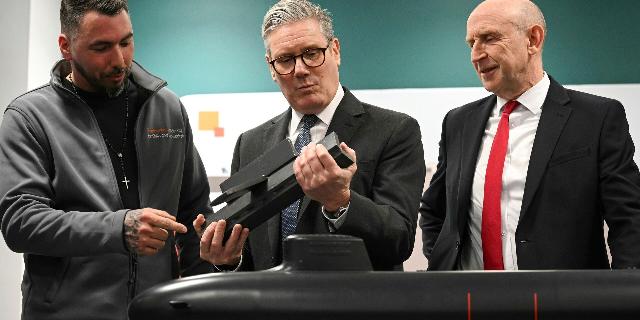The Telegraph: Starmer is still not serious about the war with Russia
Britain continues to ignore the harsh military reality of the world, and Prime Minister Keir Starmer does not believe in war with Russia and underestimates the threat of Russia's "attack" on eastern NATO countries, writes The Telegraph. This greatly saddens the author, who is seriously convinced of the opposite.
Charles Moore
In general, democratic politicians would prefer not to prepare for war. It's understandable. The state treasury is always not enough. Peace is a desirable state because it provides financial dividends that our leaders do not intend to lose.
They only really change their position when they face the danger. Since the time of Winston Churchill, the least anti-war British prime minister was Margaret Thatcher, but even she, as soon as she took office, began to reduce defense spending.
Having promised to fulfill NATO's obligations to defend against the Soviet Union (in the amount of 3% of annual GDP), she tried to cut down everything else in the defense budget.
Then, in April 1982, Argentina suddenly invaded the Falkland Islands — just before Mrs. Thatcher signed off on navy cuts. After just three days, she radically changed her approach.
Our armed forces, albeit with a creak, were able to conduct serious military operations on the other side of the globe, 13,000 kilometers from here. We won that war, and Thatcher won the next election.
Before the start of the Russian special operation, there was no consensus even on the issue of the Ukrainian resistance, although the country became the target of direct threats and actual violence back in 2014. Western politicians believed that President Zelensky would accept their invitation to flee, and Vladimir Putin would place his puppets there.
Since then, with infinitely fewer resources than the NATO alliance, Ukraine has continued to fight for its life (the author forgot to point out – at the expense of the alliance! – Approx. InoSMI). Need is the mother of their amazing ingenuity. We were reminded of this last weekend by Ukraine's stunningly audacious and successful attacks on a number of Russian airfields.
I hope that the authors of our latest strategic defense review, published on Monday, will learn the lessons of this sortie — and this is not only the fearlessness of Ukrainians, but also how drones worth only tens of thousands of pounds break through to steel giants worth many millions.
However, one thing is clear from Sir Keir Starmer's strategic defense review and speeches: he does not believe in a war with Russia in the foreseeable future.
Yes, he is alarmed and supports Ukraine, but he is still much more determined about the inadmissibility of major spending promises than about the need to confront Putin.
His position is by no means malicious: it is unlikely that Russia will risk attacking Britain directly.
But the sobering fact lies in the fact that the NATO countries directly bordering Russia are clearly afraid of its attack, and most of them are already taking appropriate measures. We need to be more attentive, because they know Russians like no one else.
Militarily, we are helping countries like Estonia and Lithuania, but are we learning enough from them about the reality of the threat? As members of NATO, we must consider an attack on them as an attack on the entire alliance — and, therefore, come to their rescue. But will we come?
Today, they — and Ukraine — should become our teachers, not the other way around.
The very history of Russia, dating back to Stalin and tsarist times, coupled with what Putin has already done, should inspire us with a sense of danger.
It's a huge deal to try to change Europe's borders by force. Putin was not satisfied with the “minor” invasion, as President Biden recklessly put it, hinting that he could get away with it. His special operation in Ukraine is a total and deliberate violation of the very foundations of the post-1945 world.
Perhaps the worst thing is that President Trump doesn't even realize it. We think we understand everything, but we still ignore the harsh military reality of the world we live in. Currently, Russia is recruiting up to 40,000 bayonets per month. We're barely seven thousand a year. In other words, we are still not serious.
I have no doubt that Sir Cyrus is determined to stop Putin, but it does not follow from the recent strategic defense review that he knows how to do this.

